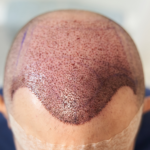Vitamin D is an essential nutrient that plays a crucial role in maintaining overall health. Often referred to as the “sunshine vitamin,” Vitamin D is produced by the body when exposed to sunlight, but many individuals struggle to maintain adequate levels of this vital nutrient. From promoting bone health to supporting the immune system, the importance of Vitamin D cannot be overstated.
In this article, we will explore the various benefits of Vitamin D, its sources, signs of deficiency, and how to ensure you’re getting enough. Additionally, we’ll discuss the growing trend of Vitamin D injections and supplements, including the role of products like GI Revive powder in supporting overall health.
What is Vitamin D?
Vitamin D is a fat-soluble vitamin that is vital for several bodily functions. The two primary forms of Vitamin D are:
- Vitamin D2 (ergocalciferol): This form is found in plant-based foods and fortified products.
- Vitamin D3 (cholecalciferol): This form is produced in the skin in response to sunlight and is also found in animal-based foods. Vitamin D3 is generally more effective at raising blood levels of Vitamin D than D2.
Unlike many vitamins, Vitamin D functions like a hormone in the body. It plays a pivotal role in maintaining proper levels of calcium and phosphorus, both of which are essential for healthy bones, teeth, and muscle function.
Health Benefits of Vitamin D
Vitamin D is involved in numerous processes within the body. Here are some key health benefits:
1. Promotes Bone Health
One of the most well-known roles of Vitamin D is its support of bone health. Vitamin D helps the body absorb calcium, a mineral necessary for building and maintaining strong bones. Without enough Vitamin D, bones can become thin, brittle, and prone to fractures.
Inadequate Vitamin D levels have been linked to conditions like rickets in children and osteomalacia in adults, both of which lead to weakened bones. Chronic Vitamin D deficiency can also increase the risk of osteoporosis, a condition characterized by fragile bones.
2. Boosts Immune System Function
Vitamin D plays an essential role in regulating the immune system. It enhances the pathogen-fighting effects of immune cells, such as macrophages and dendritic cells, and reduces inflammation. Adequate Vitamin D levels are associated with a lower risk of autoimmune diseases, infections, and other health problems.
Vitamin D may help prevent chronic diseases like type 1 diabetes, multiple sclerosis, and rheumatoid arthritis by modulating the immune response and reducing inflammation.
3. Supports Heart Health
Emerging research suggests that Vitamin D may have a role in heart health. Studies indicate that Vitamin D deficiency could increase the risk of cardiovascular diseases, such as heart attacks, strokes, and hypertension. Vitamin D is believed to improve the function of blood vessels, reduce inflammation, and support proper blood pressure regulation.
4. Enhances Mood and Mental Health
Vitamin D has been linked to improved mood and mental well-being. Low levels of Vitamin D are associated with an increased risk of depression and other mood disorders. In fact, some studies suggest that individuals with low Vitamin D levels may be more susceptible to seasonal affective disorder (SAD), a type of depression that occurs during the fall and winter months when sunlight exposure is limited.
Vitamin D receptors are found in areas of the brain that regulate mood and emotions, making this vitamin vital for mental health. Regular sun exposure, along with a balanced diet, can help maintain optimal Vitamin D levels.
5. Regulates Insulin and Diabetes Management
There is growing evidence that Vitamin D plays a role in insulin regulation and may help manage diabetes. Individuals with low Vitamin D levels are at an increased risk of developing type 2 diabetes. Vitamin D helps improve insulin sensitivity, which is crucial for managing blood sugar levels.
6. Supports Muscle Function
Vitamin D is essential for maintaining muscle strength. Research suggests that adequate Vitamin D levels contribute to muscle function, especially in older adults, and help prevent falls. Muscular weakness is one of the symptoms of Vitamin D deficiency, and it may contribute to an increased risk of falls and fractures.
Sources of Vitamin D
Vitamin D can be obtained from three primary sources:
1. Sunlight
The body produces Vitamin D when the skin is exposed to ultraviolet B (UVB) rays from the sun. Spending time outdoors in direct sunlight for about 10-30 minutes a few times a week is typically sufficient for most people to produce enough Vitamin D. However, several factors can affect the production of Vitamin D from sunlight, including skin color, geographic location, time of year, and sunscreen use.
2. Diet
Vitamin D can also be found in certain foods, although it is not naturally present in many foods. Some dietary sources of Vitamin D include:
- Fatty fish such as salmon, mackerel, and sardines
- Cod liver oil
- Fortified foods, such as dairy products, orange juice, and breakfast cereals
- Egg yolks
- Beef liver
- Cheese
It can be challenging to get enough Vitamin D from food alone, especially for individuals who do not consume animal products or fortified foods.
3. Supplements
For individuals who are unable to obtain sufficient Vitamin D from sunlight or food, supplements are a practical solution. Vitamin D supplements come in two main forms:
- Vitamin D2 (ergocalciferol): Derived from plant sources.
- Vitamin D3 (cholecalciferol): Derived from animal sources, this form is generally more effective at raising blood levels of Vitamin D.
If you have trouble getting enough Vitamin D through food and sunlight, taking a Vitamin D supplement may be necessary to maintain optimal health.
Signs of Vitamin D Deficiency
Vitamin D deficiency is a common issue, particularly in regions with limited sunlight or in people who spend a lot of time indoors. Some signs of Vitamin D deficiency include:
- Fatigue or general tiredness
- Bone pain or muscle weakness
- Frequent illness or infections
- Depression or mood swings
- Hair loss
- Impaired wound healing
- Osteoporosis or frequent fractures in older adults
If you suspect a Vitamin D deficiency, it’s important to consult with a healthcare provider who can perform a blood test to check your Vitamin D levels.
Vitamin D Injections: When Are They Necessary?
While many individuals can meet their Vitamin D needs through sunlight exposure and supplements, some may require Vitamin D injections, particularly if they have severe deficiencies or absorption issues. Vitamin D injections are administered by a healthcare provider and can help raise Vitamin D levels quickly.
Vitamin D injections are often recommended for individuals with conditions such as:
- Chronic kidney disease
- Celiac disease or other gastrointestinal disorders that affect nutrient absorption
- Obesity, as fat tissue can store Vitamin D and limit its availability for use
- Malabsorption syndromes such as Crohn’s disease
- Inability to tolerate oral supplements
Vitamin D injections are typically given in the form of Vitamin D3 (cholecalciferol) and can provide a more immediate boost to Vitamin D levels compared to oral supplements. If you’re asking yourself, “Where can I find Vitamin D injections near me?” a healthcare professional or a local clinic specializing in nutritional support will be able to guide you.
GI Revive Powder and Vitamin D
GI Revive powder, often used to support gut health, is a supplement that can play a role in the absorption of nutrients, including Vitamin D. Since Vitamin D is a fat-soluble vitamin, it requires proper digestion and absorption for optimal utilization by the body. By promoting gut health, GI Revive can enhance nutrient absorption and support overall health.
If you struggle with digestive issues or malabsorption, incorporating a product like GI Revive into your routine can help ensure you’re getting the most out of your Vitamin D sources, whether from food, sunlight, or supplements.
How to Ensure You’re Getting Enough Vitamin D
Maintaining optimal Vitamin D levels is essential for overall health. Here are a few tips to ensure you’re getting enough:
- Get sunlight exposure: Aim for 10-30 minutes of sunlight a few times a week, depending on your skin type and location.
- Eat Vitamin D-rich foods: Include fatty fish, fortified foods, and egg yolks in your diet.
- Consider supplements: If you’re at risk of deficiency, talk to your healthcare provider about taking a Vitamin D supplement.
- Monitor your levels: Regular blood tests can help you track your Vitamin D status and make adjustments as needed.
Conclusion
Vitamin D is an essential nutrient that supports numerous aspects of health, from bone and immune system health to mental well-being and cardiovascular function. If you are struggling to maintain sufficient Vitamin D levels, consider incorporating more sun exposure, Vitamin D-rich foods, and supplements into your routine. For individuals with severe deficiencies, Vitamin D injections can provide a quick and effective solution. Don’t forget that products like GI Revive powder can help enhance nutrient absorption and support overall health, ensuring you get the most from your Vitamin D sources.




